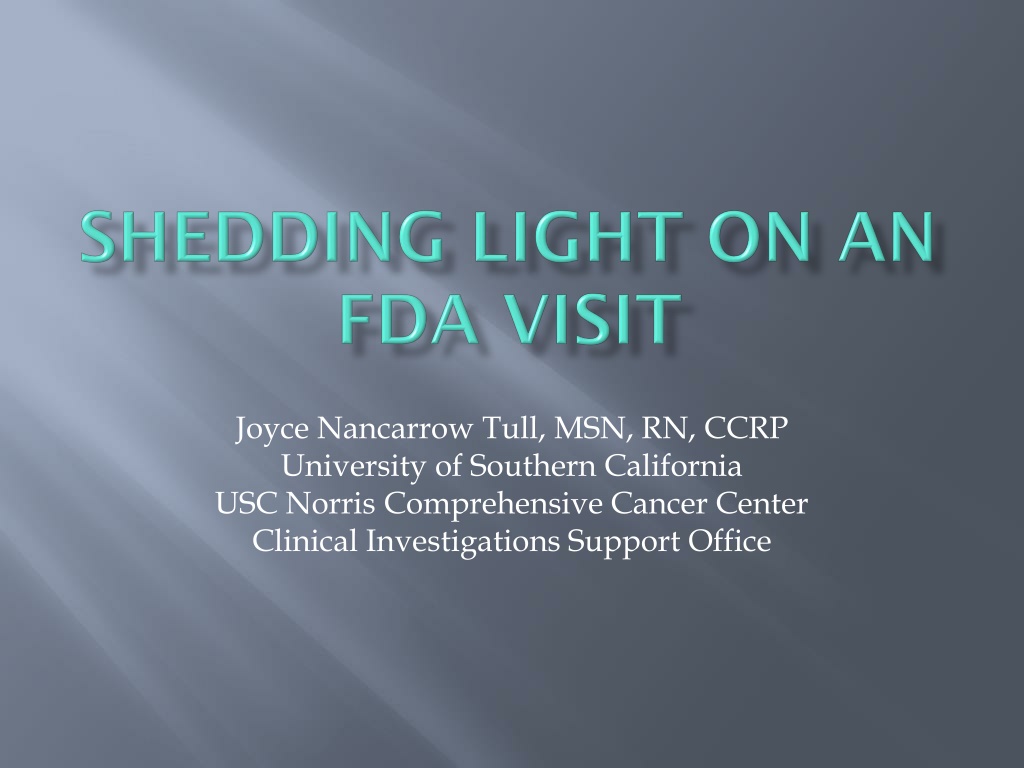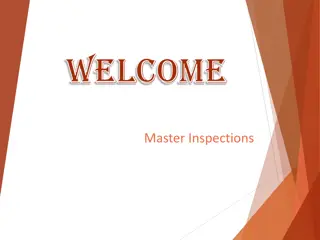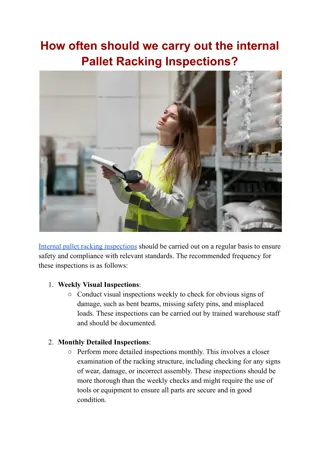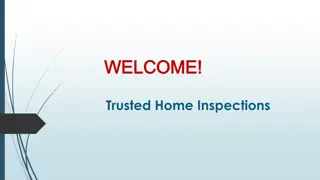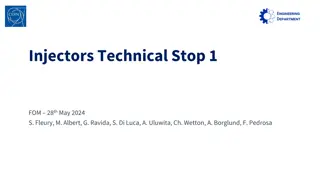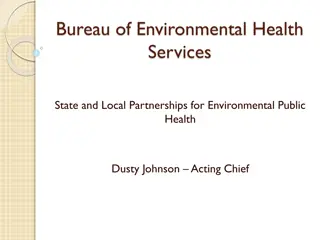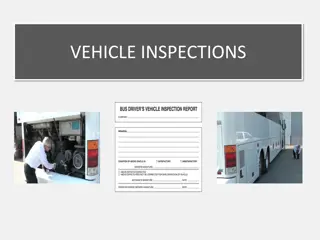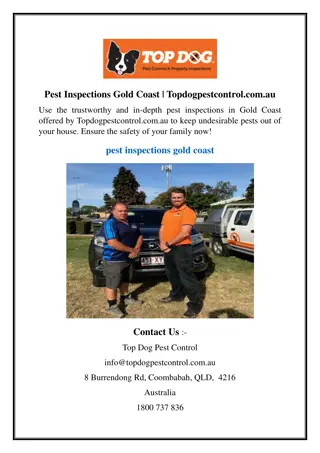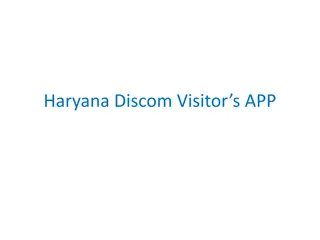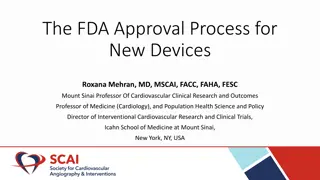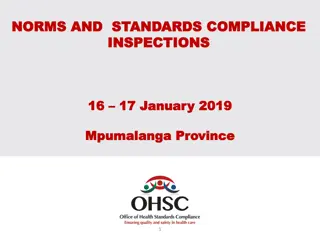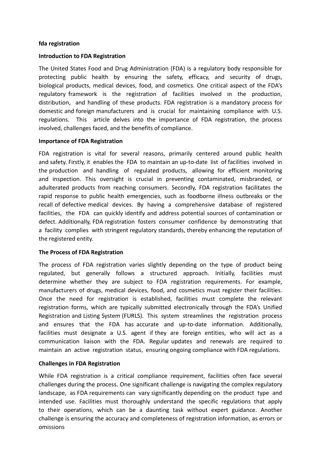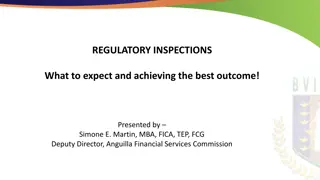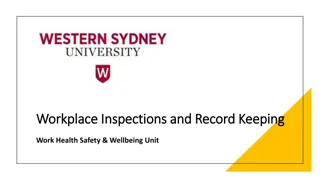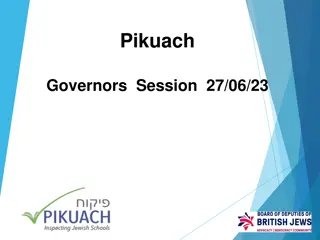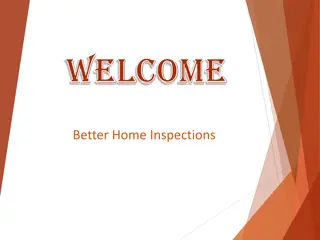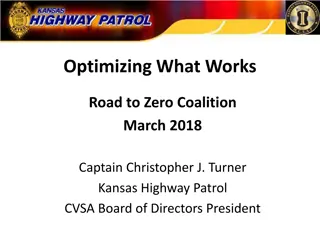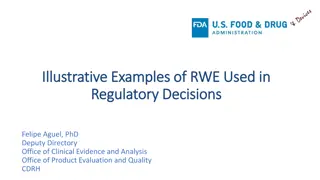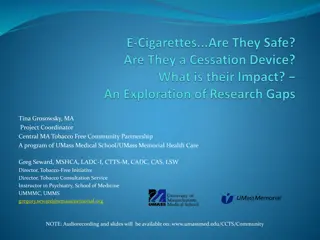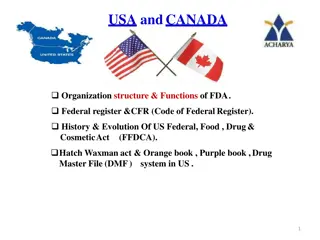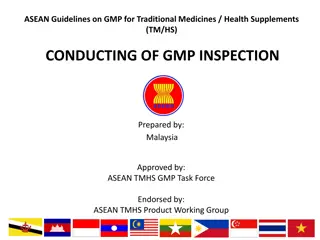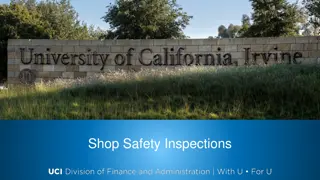Expert Tips for Successful FDA Inspections
Gain insights from Joyce Nancarrow Tull, an experienced professional, on navigating FDA inspections successfully. Learn about legal authority, inspection procedures, key strategies, and more. Be proactive, seek expert advice, and build knowledge to enhance your readiness for FDA audits.
Download Presentation

Please find below an Image/Link to download the presentation.
The content on the website is provided AS IS for your information and personal use only. It may not be sold, licensed, or shared on other websites without obtaining consent from the author.If you encounter any issues during the download, it is possible that the publisher has removed the file from their server.
You are allowed to download the files provided on this website for personal or commercial use, subject to the condition that they are used lawfully. All files are the property of their respective owners.
The content on the website is provided AS IS for your information and personal use only. It may not be sold, licensed, or shared on other websites without obtaining consent from the author.
E N D
Presentation Transcript
Joyce Nancarrow Tull, MSN, RN, CCRP University of Southern California USC Norris Comprehensive Cancer Center Clinical Investigations Support Office
I have no financial disclosures I have been through four (4) FDA visits and met three different FDA Inspectors for IND approval; this does not make me an expert, just somewhat of a survivor. I am willing to talk with you about what I learned and encourage for you to join me in sharing experiences. I am not speaking on behalf of any institution or their audit preparation.
Begin to understand the legal authority and objectives of the FDA Inspection/Inspector (no substitute for legal advise). Develop an understanding of basic inspection procedures Develop awareness of the BIMO Regulations Identify key strategies for success during an FDA Audit: Develop an understanding of how to answer questions during an inspection Homework needed for a successful audit Develop an understanding of how to host the FDA and manage the Inspection Understand the key FDA Terms
Its amazing what you see on FACEBOOK .. Be mindful of what you post online ..
Before any visit is announced explore the topic with your QA and Leadership what is your risk and what do you need to be prepared? When was the last time you or your Investigator were audited by the FDA? By another agency? Get to know an expert and consider having someone outside your institution look over your processes and procedures. Acquaint yourself to people who have been through this; sharing knowledge and experience helps. Trust your instincts and keep your wits about you .
If you receive notification youll be visited by an FDA Inspector keep the following in mind: Time is of the essence; they want to come within days (3-10), not weeks or months (at the direction of the FDA) The visit is often scheduled around the PI The company has an idea if you may be a site for inspection High accrual [driving the trial results] site with issues affecting trial outcome [safety] Imbalance or outlier [ too many or too few ] Clinical Investigator History (483s are public knowledge/searchable) Regional or county diversity There is usually a pre-FDA visit from the Sponsor s internal QA group; they will look to determine your readiness for the FDA
Get to know the Bioresearch Monitoring Program (BIMO) of the FDA http://www.fda.gov/ICECI/ComplianceMan uals/ComplianceProgramManual/ucm255614. htm Keep notes of the lessons learned; that s where the BIMO checklist came from! They work as long as they want each day; they have certain objectives they have to achieve in the visit so plan ahead and have adequate support for potential long (and tiring) days.
Its a team sport so try to have more than just one person who will be working with the Inspector: roles can include host, scribe, runners, and base-camp staff The Host is the main speaker who knows the trial participants, conduct of the trial, and important events which occurred including SAEs, deaths on study, etc. (It is NOT necessarily the RN or CRC who cared for the patients.) The Scribe writes everything down that is said in the Inspection room. The Runners bring requested document copies to the Inspection room. The Base Camp Team makes copies, keeps logs of documents copied, and helps in any way needed.
Its important to remember: The company s reputation and IND success depends on the site visits both at the company and at the accruing sites. They will stay in close contact with you if you are under FDA audit The Principal Investigator s reputation and future in research is linked to the success of the IND application. A 483 is a matter of public record and can be searched by Investigator name https://fdazilla.com/store/483s/ and http://www.fda.gov/ICECI/Inspections/default.htm
GCP: a standard for the design, conduct, performance, monitoring, auditing, recording, analysis, and reporting on clinical trials that provides assurance that the data and reported results are credible and accurate, and that the rights, integrity, and confidentiality of the trial participants are protected. http://fda.gov/downloads/Drugs/Guidance ComplianceRegulatoryInformation/Guidances /ucm073122.pdf
Clinical Investigation any experiment in which a drug is administered to human subjects. An experiment is any use of a drug except for the use of a marketed drug in the course of medical practice [21CFR312.3] Clinical Investigator Individual who actually conducts the clinical investigation [21CFR312.3, 21CFR812.3(i)]
Clinical Investigator: Responsible for the overall conduct of the study at the study site [21CFR312.60] Directing administration or dispensing of test article Ensuring that data are collected and maintained in accordance with the protocol and regulatory requirements Following the approved investigational plan Obtaining Informed Consent prior to conducting any study- related procedures Maintaining adequate and accurate records [21CFR312.62] Administer test article only to subjects under control of the Investigator Ensure Adverse Events are appropriately reported Ensure adequate IRB review Investigator Agreement, Statement of Investigator (1572), Financial Disclosure [21CFR54]
Its tremendously important to have good records (be audit ready every day): clear policies/standards of practice, Clear training records, Complete charts and regulatory binders Quality documentation Job descriptions Drug accountability records Plan for an opening meeting and a debrief at the end of the day Help everyone prepare, including the PI (scripting helps)
Their authority: Extends to what is reasonably necessary to achieve the objective of the inspection Is held under federal statutes (Section 704 of the FDCA-Federal Food Drug and Cosmetic Act) Concept of reasonableness Focuses on the trial being conducted in a manner which ensures the rights and safety/welfare of the trial participants, the accurate capture and reliability of the trial data, and assess compliance with the FDA s regulations for clinical trials
Letter or phone call to PI FDA scheduling visit. Don t forget to prepare them too! Encourage communication with the Clinical Trials Office at all stages (IND application, sponsor updates, accrual position, fast track status) The Arrival: Issuing the Form 482: Generally must meet with PI to obtain signature Questions PI must know during initial interview and possible preparation (scripting).
Examine the conduct of the trial through the available study documents and ensure this documentation supports the trial being conducted in compliance with FDA regulations Assess the safety of the participants and ensure they were treated in accordance with clinical practice which would assess and support their safety. Verify the data from the company and sites to ensure it supports both of these objectives in the use of the experimental agent.
Data Submitted to FDA Source CRF
Escorting the Inspector to the visit room: Segregate the Inspector Inform staff and caution on behavior (no hallway conversations this week ) Professionalism and conduct friendly and professional Inspection techniques Inspector makes observations of conditions, equipment, facilities, products, etc. Behavior; statements and note taking Document review: Inspector will compare information, ask questions, and confirm through interviewing Questions, question, questions .. Declarative statements which SEEM like questions
Interviewing: non-accusatory, conversational in Q&A; fact finding. Check and confirm with multiple sources do not be offended if they ask multiple people the same question Direct, leading, hypothetical and open ended questions and statements how much will you talk? FDA may ask questions for which they already have or know the answers. They are validating your knowledge and the information provided by the company. This can happen to multiple people. The Inspectors are very intuitive and will look for indicators of possible deception (verbal and nonverbal) Interrogation vs. interview
..and copy: Study protocol Procedures/SOPs Informed consent documents IRB documents Test article preparation, dispensing, and storage records (DARF accountability) Clinical records and raw data Concomitant Meds Records of Adverse Reactions, Deaths Records of instances of emergency code breaking Qualifications and Job Descriptions of Any Staff Training Records (including SIV, etc.)
Sales and financial data Personnel records (employee file) R&D data for articles not yet the subject of a marketing submission (Example: an IND or NDA not yet filed) Other non-study related data **It may help to have a relationship with a law firm familiar with the FDA and their jurisdiction . The firm must be admitted to the bar in your state and consults with you on issues if they arise.
Immediate Action List: who needs to know the FDA is coming at your institution? Preparation Checklist and the BIMO Regulations point to all documents they may request; have these prepared and held for review (can use staging area) Prepare the PI with the information they should know (scripting). Talk with staff and demystify this audit; it is often worrisome for many and like all audits represents an opportunity for improvement! Two copies of every document; one for you to keep, one to give to the Inspector. You can prepare ahead! Close communication with the Sponsor/QA Team
DAILY ACTIVITIES - Interviews - One time meetings (can repeat! - Records - Document copying ENTRY & OBSERVATION - Ground rules - Location - Access to documents - Daily breaks & scheduling CLOSE-OUT - Scheduled - PI may or may not be physically present (can call in) - Notes, review with Company - WHEW!!! INTRODUCTION - Credentials & Notice reading - Focus of Inspection: For cause or routine inspection
Daily Debrief with the Inspector and team and potentially with the Sponsor The Official Exit Meeting A Critical Part of the Inspection (usually the worst comes first ) Observations List of factual observations if opinions or conclusions are present, must be backed up with factual examples The Form 483 Findings Significant items only Discussion and Follow-up ask for help. The response is due within 15 calendar days and requires careful preparation and composition.
Do not offer anything of monetary value (food, beverages, etc.). Know your rights (and FDA s). Listen to the question. Ensure you understand the questions; Ask for clarification if necessary. Review pertinent documentation, if possible- it s OK! Answer the question that is asked. Answer ONLY the question that is asked. (Don t volunteer information.) STOP when the question is fully answered.
Answer questions you know, otherwise: I don t know, I ll / (name) will follow up Be polite, non-defensive, non-argumentative Correct any erroneous information provided Follow company policy regarding FDA affidavits Always respond to questions with a witness (scribe) present; this avoids statements which require future clarification. Do not allow FDA free access to files; obtain records for them Answer truthfully and completely, within the scope of the question. ALWAYS TELL THE TRUTH!
BIMO (Bioresearch Monitoring) Regulations PI Questions and Answers Notification List Inspection Preparation Questions Documentation Log Phone Contact Log Key Date Information Your consent and protocol opening processes (develop yourself)
Characteristics depend on the Inspector and their tenure with the Agency Can be friendly/casual or confronting/aggressive: old style vs. new style Questioning, questioning, questioning Multi-checking of key information Unassuming Open-ended statements that lead you into answering a question which is not really a question Varying backgrounds with varying experience in inspections
Key Strategies for success Be audit ready every day; preparation is key. Notify the important people of the FDA visit. Communicate Team Support Have a clear knowledge of the FDA BIMO Regulations Determine if you re being asked a question or hearing a declarative statement; one requires an answer, one does not. Limit your responses to just what is being asked. If you re uncertain, clarify; if you don t know indicate you will find the answer. Know your inspector and their background Help your PI prepare for their part Limit the number of people involved Debrief at the end of every day Share learning experiences we learn by helping each other!
Key Terms Inspector BIMO Host, Scribe, Runner 482 483 Jurisdiction Reasonableness Findings
QUESTIONS? Thank you! joyce.tull@med.usc.edu
